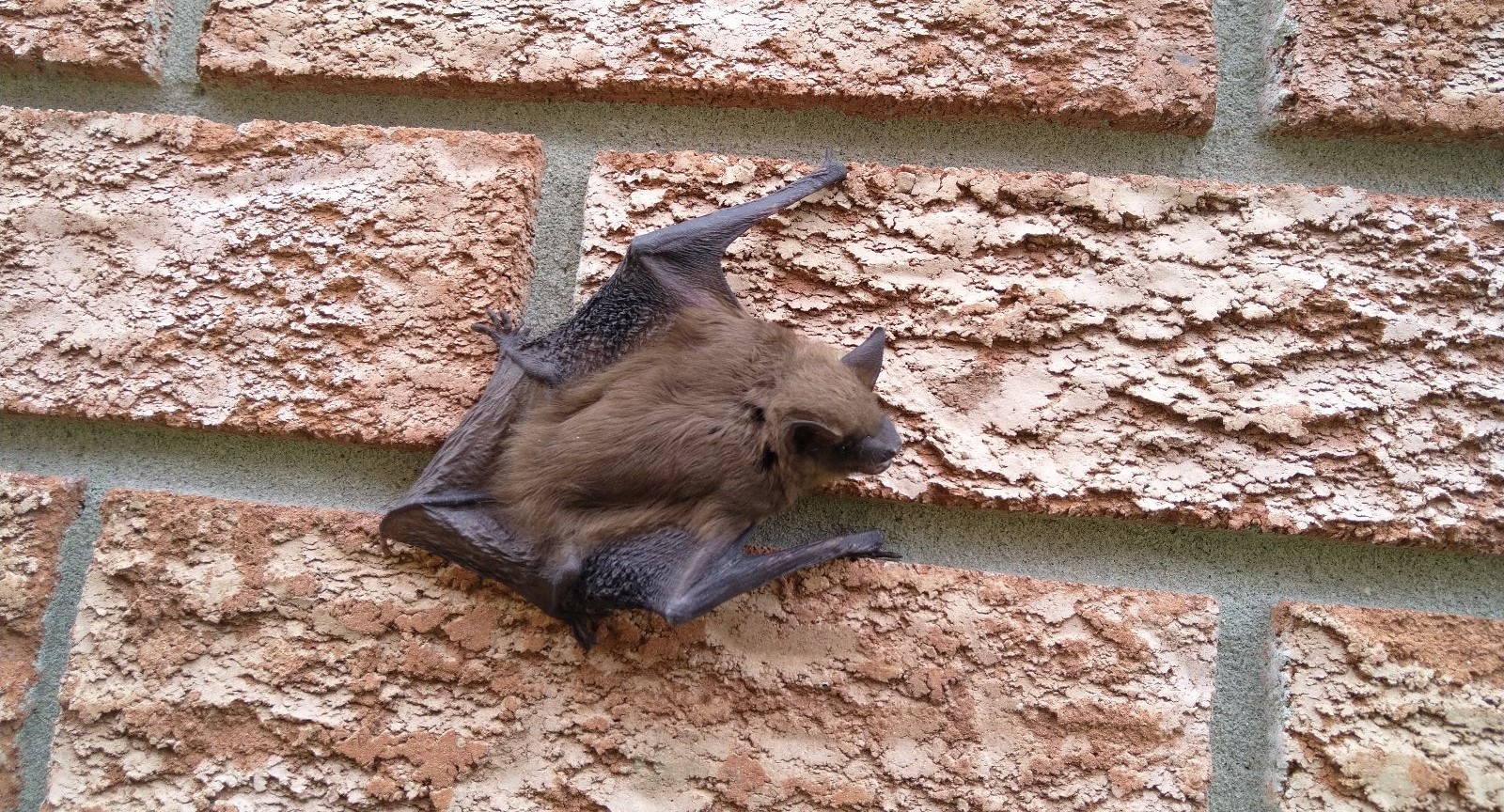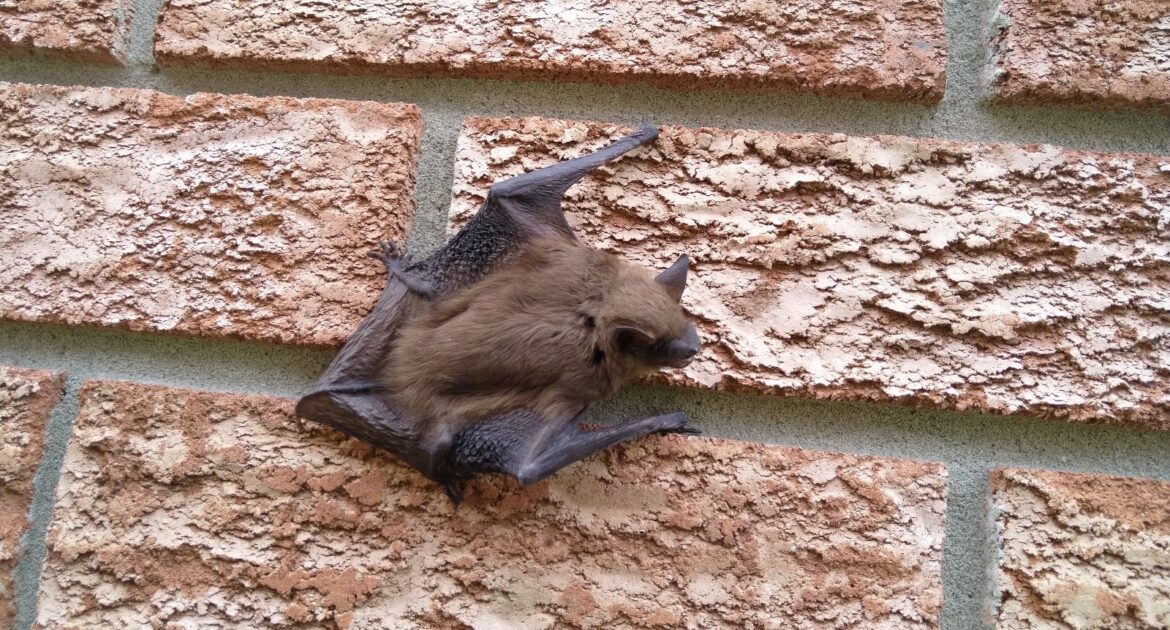You walk into your attic or basement and are greeted with a strange, lingering smell. Could it be bats? Yes, bat infestations definitely smell, and it’s often one of the first signs homeowners notice when these animals move into their homes. If you don’t address the issue, the problem can grow quickly, resulting in even stronger odors and potential damage to your home.
The smells don’t just come from the bats themselves. Their droppings, urine, and even the animals’ remains can leave a distinct and unpleasant odor. It’s often described as musty or ammonia-like, and it won’t just disappear on its own.
At Skedaddle Humane Wildlife Control in Marietta, we’ve got your back. In this blog, we’ll explain what causes these smells, how you can go about identifying bat infestation odors, and the steps to take if it happens to you. If you’ve been wondering, “Do bat colonies cause home smells?” or need wildlife removal in Marietta, keep reading to learn more.
Do Bat Infestations Smell?
Yes, bat infestations do have a distinct smell—and it’s far from pleasant. The odor has been described as musky, ammonia-like, or even similar to rotting material. The larger the colony, the stronger the smell becomes. This is because bats tend to stay in the same location for a long time, so their waste builds up, sinking into porous materials around them.
While one or two bats may not create a noticeable problem right away, it doesn’t take long for the situation to escalate. The combination of waste, moisture, and poor ventilation creates an environment where these smells thrive. If you’re noticing a persistent, unusual odor and suspect bats, it’s worth investigating further.
This smell not only makes your space uncomfortable but can also signal deeper issues, like potential health risks or structural damage. Catching the problem early can help minimize the impact and make cleanup much easier in the long run.
Identifying Bat Infestation Odors
Recognizing if a strange smell in your home is from bats can be tricky, but there are some clear signs to watch for. The first clue is often a sharp, ammonia-like odor. This unmistakable smell comes from bat urine, which can soak into walls and insulation over time. If left untreated, the buildup only gets worse, making the odor even stronger.
Another common sign is a rotting or decaying smell. Bats sometimes die in areas like walls or attic spaces, and as they decompose, the stench spreads. This particular odor can even travel through vents, making it feel like your entire home is affected.
You might also notice a strong musty scent. This comes from bat droppings, known as guano, which emit a damp, moldy odor. The more guano that accumulates, the more powerful the smell becomes, especially in spaces where bats roost, such as attics or chimneys.
If these kinds of odors are popping up in specific parts of your home, it’s a good idea to get professional help. These smells aren’t just unpleasant; they can reveal what’s going on behind the walls and point to a problem that needs fixing quickly.
What Causes Bat Infestation Odors?
The smells caused by bats don’t come out of nowhere. There are specific reasons why bat infestations create such strong and unpleasant conditions. Here’s what you need to know:
- Bat Urine and Guano: Bats produce both urine and droppings on a regular basis, often in the same places where they roost. Over time, their waste soaks into materials like insulation and wood, giving off that ammonia-like or musty smell. The more bats there are, the worse the issue becomes.
- Moisture and Mold Growth: Bat waste is damp by nature. When guano builds up in dark or poorly ventilated places, it creates the perfect conditions for mold to grow. Mold not only adds to the odor but can also lead to health concerns.
- Dead Bats in Walls or Attics: Unfortunately, not every bat makes it out of your home safely. When bats die in hidden spaces, their decomposing bodies give off a stench that can be almost overwhelming. This smell becomes stronger as time goes on.
- Pheromones and Colony Growth: Bats release certain scents (pheromones) to signal others to join them. These natural chemicals attract even more bats, which only increases the waste, damage, and smell over time.
Each of these causes adds up, making the situation worse the longer it goes unaddressed. That’s why taking action quickly is so important if you recognize the signs.
How Do Bat Odors Affect Your Home?
Those smells from bats are more than just annoying—they can have a serious impact on your home. For starters, the odor doesn’t just disappear when the bats are gone. Their waste can seep into walls, ceilings, and even insulation, leaving behind a smell that’s incredibly tough to get rid of. Without proper cleanup, those lingering odors can stick around for a long time.
But it’s not just about bad smells. Bat urine and droppings can actually damage your home. Over time, the waste can soak into wood and insulation, causing materials to weaken and, eventually, leading to costly repairs. The longer the issue goes unchecked, the worse it becomes.
On top of that, there are real health risks to be concerned about. Bat droppings, also known as guano, can carry harmful pathogens. One of the most serious is Histoplasmosis, a disease caused by spores that can affect your breathing. Protecting your family’s health becomes a priority when bats have been in your home.
And if bad smells and health risks aren’t enough, the odors from bat waste can attract other unwanted visitors. Rodents, insects, or even larger animals might be drawn to the scent, turning a small infestation into an even bigger problem. That’s why dealing with the issue promptly is so important—not just to make your home more comfortable but to ensure it’s safe and secure for everyone living in it.
How to Remove Bat Infestation Odors
Once you’ve recognized the problem, the next step is getting rid of those odors for good. Here are some proven ways to address the issue:
- Professional Cleanup: Removing guano and sanitizing the areas where bats roosted is one of the first steps. Professionals can ensure that all traces of waste are properly handled, making your space safe and odor-free.
- Replacing Contaminated Insulation: Insulation that has absorbed bat waste often needs to be replaced. This is essential for eliminating smells and addressing any structural or health risks.
- Ventilation and Dehumidifiers: Improving airflow in affected areas can reduce moisture and help dry out the space. Using dehumidifiers can also prevent mold growth and keep the odor from spreading.
- Odor Neutralizing Treatments: Specialized cleaning agents designed for bat waste can target deep-set smells. These treatments neutralize odors effectively, leaving your home fresh and clean.
Each of these steps plays an important role in restoring your home after an infestation. While tackling the issue yourself might seem tempting, trusting a professional ensures a more thorough and safe process.
Time to Clear the Air!
Bat infestations don’t just disrupt your home—they leave behind smells and damage that can have lasting effects. If you’ve been noticing strange odors and suspect these animals are the cause, don’t wait to act. Getting rid of the problem quickly can save you time, money, and unnecessary headaches.
When you need expert help, Skedaddle Humane Wildlife Control is here for you. Our team specializes in humane solutions that prioritize the safety of both your home and the animals. From identifying bat infestation odors to full cleanup and odor removal, we’ve got you covered. If you’re in Marietta, wondering, “Do bat colonies cause home smells?”—the answer is yes, and we’re here to help fix it. Contact us today to keep your home fresh, safe, and bat-free!




